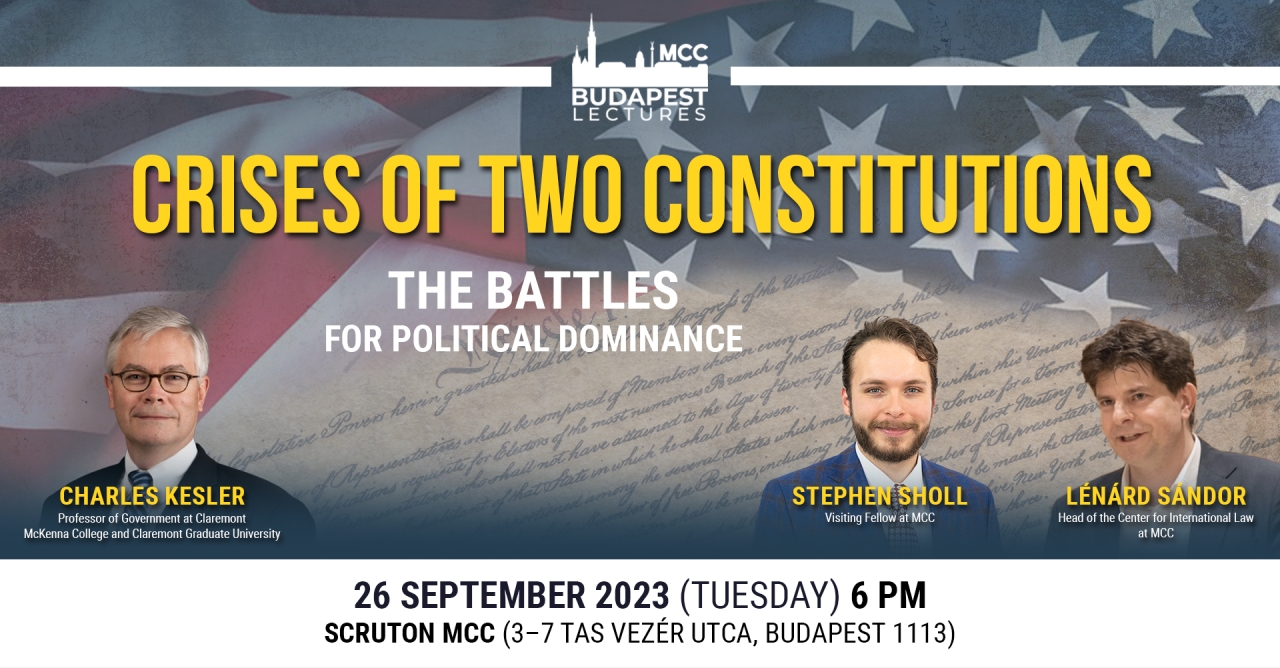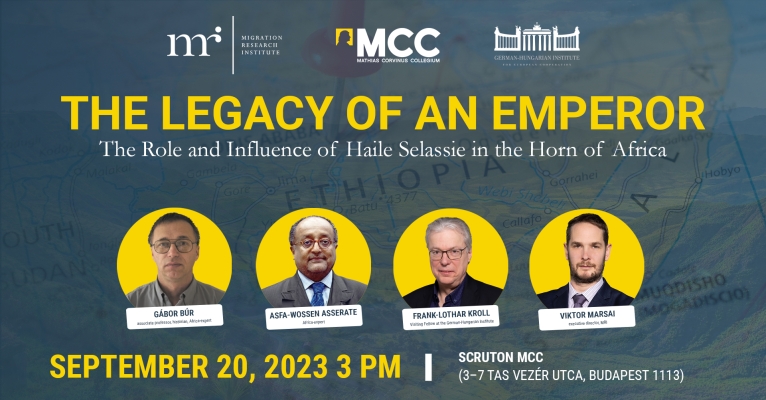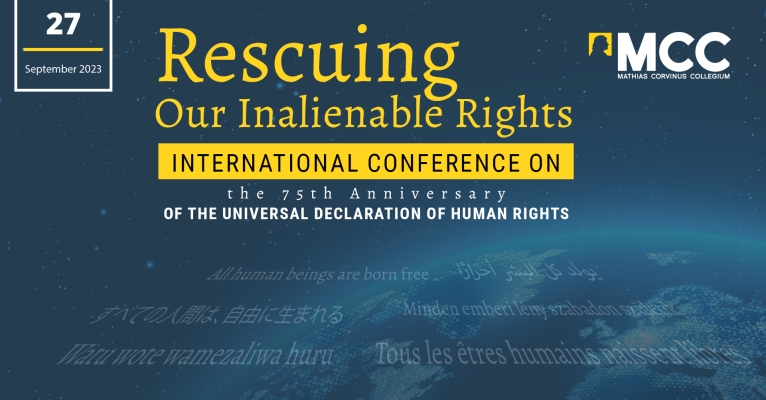One major purpose of a national constitution is to express sovereignty, independence as well as the inner cohesion of a political tradition and community. A constitution is therefore based on a shared origin or a widely agreed idea, embodies a way of life and accepted virtues, as well as projects a common future. But what happens if two constitutions exist instead of one or at least two opposing interpretations of the same legal document within the same country? What happens if there are disagreements around the historical milestones and past achievements, or there is inability to imagine a common future or a way of governing itself or being governed? Is this the American reality today, and what can we learn from this experience? The next episode of the Budapest Lectures series will explore these questions with Charles Kesler, author of the “Crisis of the Two Constitutions: The Rise, Decline, and Recovery of American Greatness” and Professor of Government at Claremont McKenna College and Claremont Graduate University. The moderators of the conversation will be Lénárd Sándor, Head of the Center for International at MCC and Stephen Sholl, Visiting Fellow of MCC.
We welcome all those interested!


